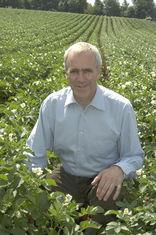
A row with potentially massive consequences for the organics sector is brewing. Sainsbury’s has dropped both Prince Charles and Soil Association president Patrick Holden from their shelves, after inspections revealed that their produce did not meet the company’s quality standards.
The move, which has received extensive national media coverage, prompted Holden to accuse leading supermarkets of being so centralised and industrialised that they cannot deliver the local, organic food their customers want.
The pair’s produce had been shipped hundreds of miles to a centralised packhouse in East Anglia before they were sent back to be sold in Sainsbury's stores local to their area, he claimed.
Holden has argued that the lapse in quality was a result of the arduous shipping process, handling to create large enough batches for the machines that wash and polish the vegetables and further storing after processing to create large enough batches for packing that left the vegetables damaged and prone to rot.
The system also resulted in a crop that had been grown for low environmental impact acquiring a greater carbon footprint than conventional carrots grown on an industrial scale, Holden continued.
But vice-chairman of the British Carrot Growers Association, David Martin, told Commercial Grower: “Those who can meet standards have successful businesses, and those that don’t have to pursue other avenues, like box schemes. I’m afraid I haven’t got a lot of sympathy for them. It’s been shown time and again that organic growers can do this - that’s why the sector is growing as fast as it is, and it seems bizarre to argue that supermarkets ought to drop their standards.”
For its part, Sainsbury’s retorted that its highest priority would always be the quality of food it sold, and that it is always amenable to thrashing out a solution with smaller suppliers who may have difficulty maintaining the grade.



